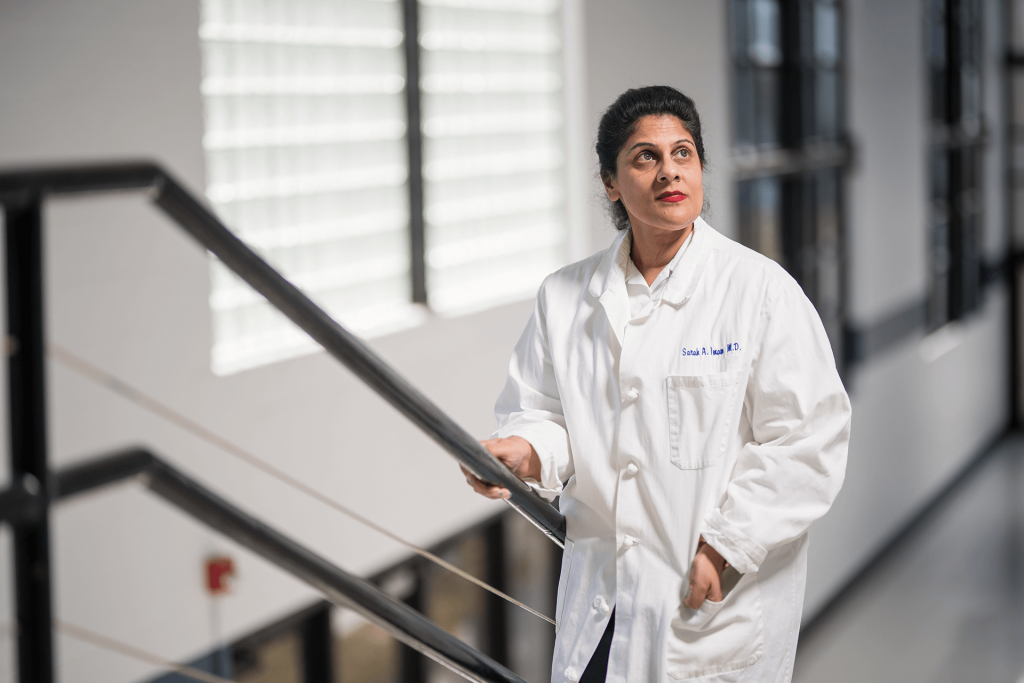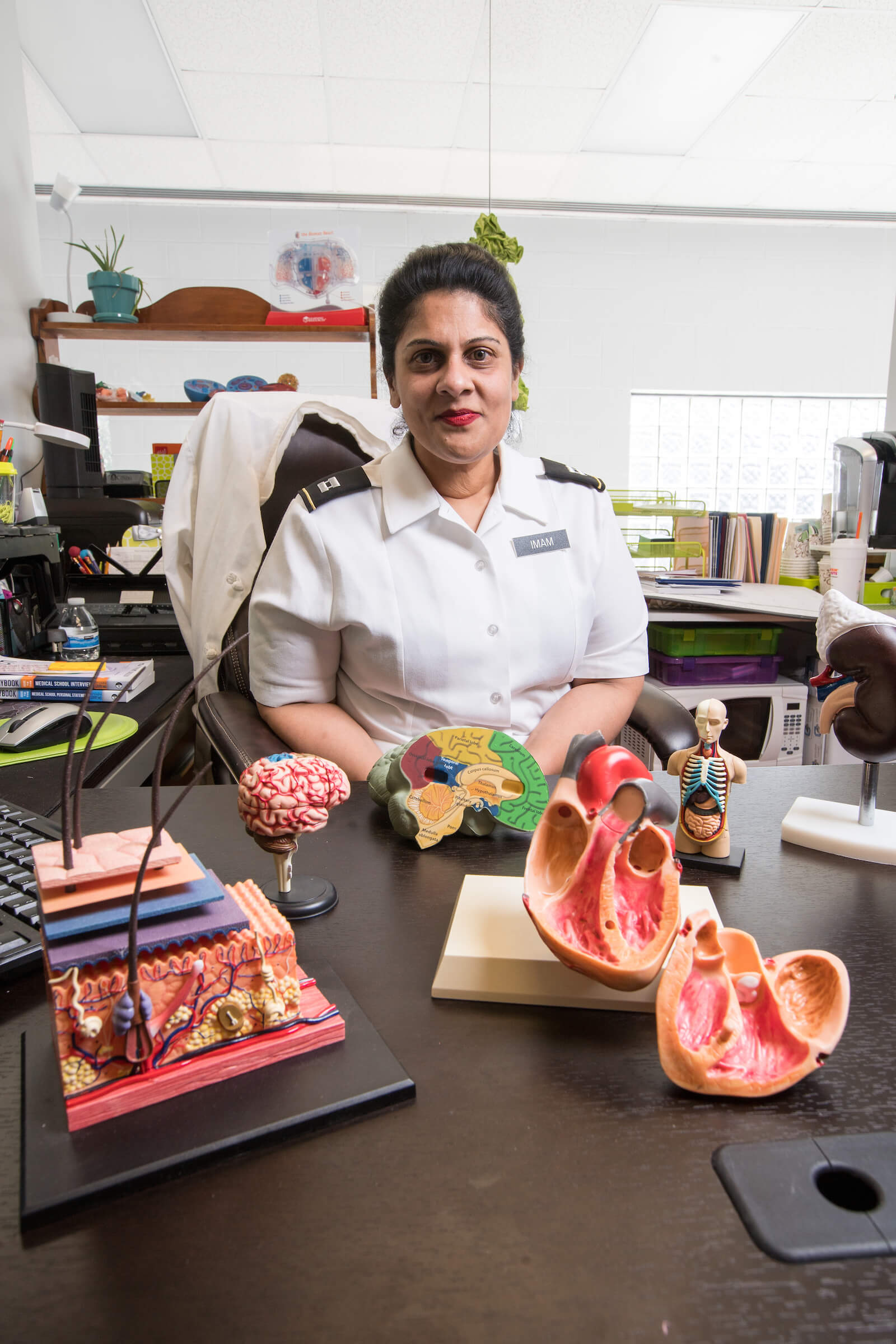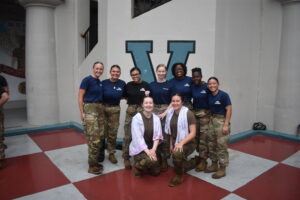
Citadel health care study abroad program requires more than meets the eye
As seen in The President’s Report 2018
In today’s age of advanced medicine where doctors and health care professionals have impressive credentials, equipment is sophisticated and high tech, and facilities are cutting edge, personal narratives have become engulfed in the rapid-fire shuffle from one patient to the next, and an important part of the health care equation is being lost.

But Capt. Sarah Imam, M.D., who teaches health and human performance, is trying to make health care more personal. In a new four-week study abroad program in Lithuania that began last May, Imam requires students to do more than just observe. She requires them to reflect on what they’ve seen and write case studies.
“A student shadowing a neurosurgeon may see a case of a hemorrhage, for example. And that student may see a surgical repair. We want them to learn more than that,” said Imam, who serves on the Southern Association of Advisors for the Health Professions’ committee for diversity and inclusion. “We want to know what brought the patient to the point of treatment that the student witnesses and what the treatment plan is beyond that point. Students need to understand the whole picture and realize that they’re dealing with a living, breathing person, not just a case. And that requires compassion.”
According to Imam, study abroad allows students a greater access to patients than they might get at home because U.S. patient privacy laws restrict access. With admission to healthcare graduate programs becoming increasingly competitive, private companies that offer medical shadowing experience abroad have become commonplace.
“What makes The Citadel program different is that we give them academic credit hours and we give them much more than just a superficial shadowing experience,” said Imam. “We teach them to ask questions and to study what they are seeing. They get to know the patient and put a history with the medical case.”
The Citadel Healthcare Study Abroad Program was recognized as a program of distinction at the Atlantis Global Health Summit in Washington, D.C.

 The Citadel celebrates Cybersecurity Awareness Month with engaging campus events
The Citadel celebrates Cybersecurity Awareness Month with engaging campus events My Ring Story: “The Citadel has taught me that I can do much more than I think I can do”
My Ring Story: “The Citadel has taught me that I can do much more than I think I can do” My Ring Story: “This ring is more than a symbol, it carries stories of hard work, resilience and the hope of those who came before me”
My Ring Story: “This ring is more than a symbol, it carries stories of hard work, resilience and the hope of those who came before me”


